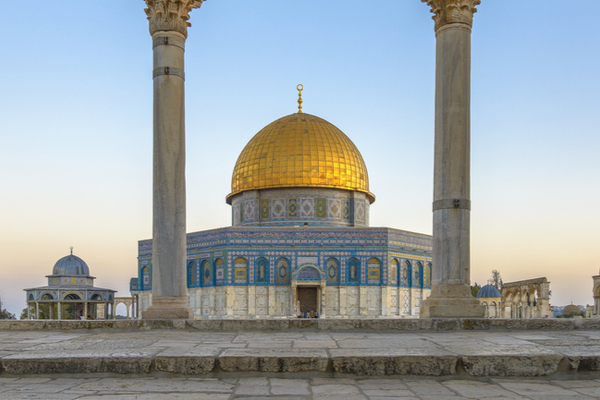Meeting came as violence-filled Ramadan draws to a close.
By Pesach Benson, United With Israel
With a month of Ramadan violence drawing towards an end, Palestinian Authority President Mahmoud Abbas met with Jordan’s King Abdullah on Wednesday to discuss “ways to defend Jerusalem and the Islamic and Christian holy sites” from what was described as “Israeli aggression,” the Times of Israel reported on Friday.
A statement issued by the Jordanian Royal Court said the king called on the international community “to restore calm in the Holy City, and to prevent the recurring attacks against Islamic and Christian holy sites and the people there.”
Meanwhile, Palestinians rioted on the Temple Mount after prayers marking the final Friday of the Islamic month of Ramadan. Rioters threw stones and fireworks at police and at Jews at the Western Wall below.
This year, Ramadan overlapped with the Jewish Passover holiday and the Christian holiday of Easter.
According to a Dutch study cited by the Jerusalem Post, “Ramadan brought with it a 200% increase in terrorist attacks in Israel between 2005 and 2016.” A wave of terror attacks by Palestinians and Arab-Israelis starting just before Ramadan has killed 14 people.
The Temple Mount is Judaism’s holiest site, where the Temples of Solomon and Herod stood.
After Israel captured the site during the Six-Day War of 1967, Defense Minister Moshe Dayan and Arab leaders agreed to a status quo in which Israel would retain sovereignty and security responsibility for the esplanade, while the Islamic Waqf would administer the holy site’s daily affairs.
The status quo also had Jordan funding and overseeing the Waqf’s activities. This relationship was enshrined in the Israel-Jordan peace treaty of 1994.
King Abdullah’s reference to the Christian holy site concerned Israeli crowd restrictions on Orthodox Christians recently celebrating the Holy Fire ceremony at the Church of the Holy Sepulchre. Scuffles broke out as some worshippers sought to push their way past police into the church.
Police said they wanted to prevent a crowd stampede like last year’s Meron tragedy in which 45 people were killed. The crowd size was based on the size of the church and its number of exits.
Jordan denounced the police restrictions, even though it is not a party to the church’s administration. The Church of the Holy Sepulchre is governed by a separate status quo between various Christian denominations and the Israeli government.
